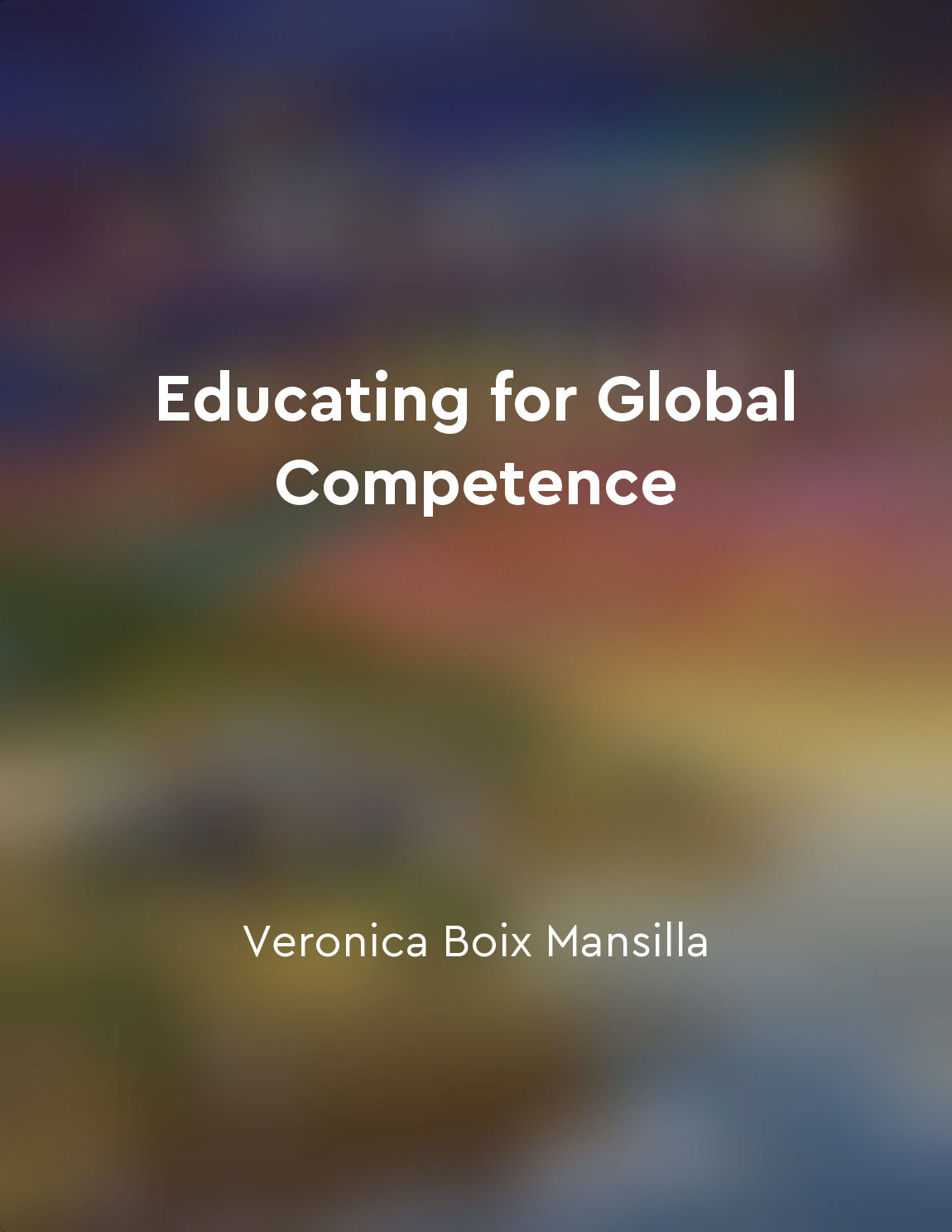Students should engage with realworld problems to develop global competence from "summary" of Educating for Global Competence by Veronica Boix Mansilla,Anthony Wells Jackson
To develop global competence, it is essential for students to engage with real-world problems. This approach allows learners to apply their knowledge and skills to authentic challenges, preparing them to navigate the complexities of our interconnected world. By tackling real-world problems, students gain a deeper understanding of global issues and develop the critical thinking skills necessary to address them effectively. Engaging with real-world problems also helps students appreciate the diversity of perspectives and experiences that exist globally. This exposure encourages empathy, open-mindedness, and respect for different cultures and viewpoints. Through this process, students cultivate a sense of global citizenship and a commitment to making a positive impact on the world. Furthermore, solving real-world problems requires collaboration and communication with individuals from different backgrounds. This collaborative approach mirrors the interconnected nature of the global community and prepares students to work effectively in cross-cultural settings. By working together to address real-world challenges, students learn to value teamwork, communication, and cooperation in achieving common goals. In addition, engaging with real-world problems fosters creativity and innovation in students. By encouraging them to think outside the box and explore new solutions, this approach promotes a mindset of continuous learning and adaptation. Students learn to embrace uncertainty and complexity, developing the resilience and flexibility needed to thrive in a rapidly changing world.- Engaging with real-world problems is a transformative educational experience that equips students with the knowledge, skills, and dispositions to navigate the complexities of our globalized world. By immersing themselves in authentic challenges, students develop a deep understanding of global issues, cultivate empathy and respect for diverse perspectives, build essential collaboration and communication skills, and foster creativity and innovation. This approach not only prepares students to succeed in the 21st century but also empowers them to become responsible global citizens who can contribute meaningfully to a more sustainable and inclusive world.
Similar Posts
It gives us an edge in a competitive world
In a world that is constantly evolving and becoming more competitive by the day, one must seek ways to gain an advantage over o...
Consensusbuilding methods vary across cultures
When it comes to building consensus in a global business setting, it is crucial to understand that methods can vary greatly acr...
Learn to love the process of learning
Learning is a lifelong journey that requires dedication and a growth mindset. It is not just about acquiring knowledge, but als...

Planning the next adventure
As we closed the chapter on one adventure, we found ourselves already deep in the throes of planning the next one. It seemed th...
Cultivating a love of learning is the ultimate goal
When we talk about education and preparing our children for their futures, it's easy to get caught up in the details - the grad...
Friendship is invaluable
Friendship is a treasure beyond measure. In my life, I have found friendships to be the most valuable asset one can possess. Fr...
Proper usage of transition words for smooth flow
Transition words are crucial for creating a smooth flow in writing. They act as bridges between ideas, helping readers to navig...
Future of AI uncertain
The future of artificial intelligence is uncertain. AI has the potential to bring immense benefits to humanity, from solving co...
Socialemotional learning is just as important as academics
In the education world, there has long been a focus on academics as the primary goal of schooling. After all, isn't the purpose...


